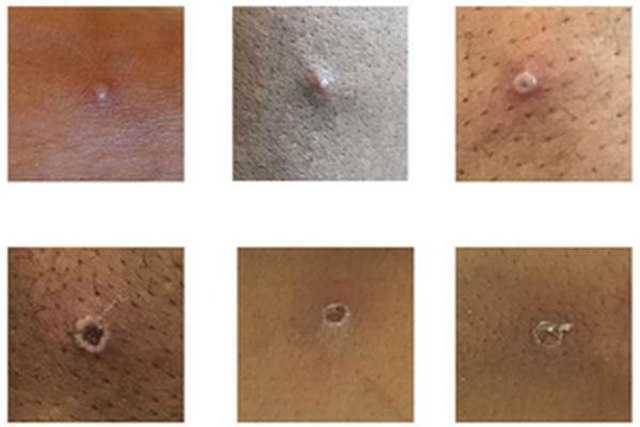Estimated reading time: 6 minutes
A new mRNA vaccine for mpox (formerly known as monkeypox) has shown impressive results in primate studies, potentially offering better protection than currently available options. The investigational vaccine, developed by Moderna, not only prevented deaths but also significantly reduced disease severity and viral spread in infected animals.
Comparing the New and Old
Researchers put Moderna’s mRNA-1769 vaccine head-to-head against the widely used modified vaccinia Ankara (MVA) vaccine. Both were tested in macaques infected with a deadly strain of the mpox virus. The results, published in the journal Cell on September 4, 2024, reveal striking differences in effectiveness.
Dr. Alec Freyn, a virology researcher at Moderna and co-first author of the study, explained, “When we put those vaccines head-to-head in primates, we saw improved responses from the mRNA vaccine in terms of not just protection from survival but also fewer lesions, shorter duration of disease, and less viral shedding in the blood and respiratory tract.”
Why It Matters
The 2022 global mpox outbreak highlighted the need for better vaccines. While current options offer some protection, they don’t always prevent severe symptoms or stop the virus from spreading. This new mRNA vaccine could be a game-changer, potentially reducing both the impact on individuals and the risk of future outbreaks.
The mRNA Advantage
Unlike traditional vaccines that use weakened viruses, mRNA vaccines work by delivering instructions to cells to produce specific viral proteins. This approach allows scientists to target the most crucial parts of the virus for triggering an immune response.
Dr. Galit Alter, a virologist and immunologist at Moderna and senior author of the study, highlighted this precision: “With the mRNA vaccine, we’re able to pick pieces of the virus that can give the most potent and most effective immune response. By doing that instead of being distracted by an entire virus, you’re able to narrow down on the pieces of the virus that give you protection.”
The new vaccine focuses on four viral antigens essential for the mpox virus to enter and infect cells.
Impressive Results
The study’s findings paint a clear picture of the mRNA vaccine’s advantages:
- Survival: All vaccinated animals survived, regardless of vaccine type. In contrast, five out of six unvaccinated animals died.
- Lesions: mRNA-vaccinated animals developed an average maximum of 54 lesions, compared to 607 for MVA-vaccinated animals and a staggering 1,448 for unvaccinated controls.
- Disease duration: The mRNA vaccine shortened the illness by over 10 days compared to the MVA vaccine.
- Viral load: Lower levels of virus were found in both blood and throat swabs of mRNA-vaccinated animals, suggesting a potential reduction in transmissibility.
Dr. Jay Hooper, a virologist at the United States Army Medical Research Institute for Infectious Diseases and senior author of the study, commented on the vaccine’s potential: “We’ve been trying to get a vaccine that will prevent spread like ACAM2000® but without the safety issues. This is showing that mRNA technology might be able to fill that niche.”
Broader Protection
An unexpected bonus of the mRNA vaccine was its ability to generate antibodies effective against a range of related viruses. Dr. Freyn noted, “We tested serum from the monkeys immunized with this vaccine against basically every Orthopoxvirus we could get our hands on. It neutralized not only mpox but also vaccinia, cowpox, rabbitpox, camelpox, and ectromelia virus. We believe that this vaccine may protect from other Orthopoxvirus threats that may emerge in the future.”
This broad protection could prove invaluable in preparing for future outbreaks of related viruses.
What’s Next?
While these results are promising, it’s important to remember that they come from animal studies. Moderna has initiated a phase 1/2 clinical trial (NCT05995275) to assess the safety, tolerability, and immune response of the mRNA-1769 vaccine in humans.
As the scientific community eagerly awaits these results, the potential for a more effective mpox vaccine offers hope for better controlling future outbreaks and reducing the burden of this disease.
Test Your Knowledge
- What is the main advantage of the new mRNA vaccine over current mpox vaccines?
- How many viral antigens does the new mRNA vaccine target?
- In the animal study, what was the most significant difference between mRNA-vaccinated and MVA-vaccinated animals?
Answer Key:
- The mRNA vaccine showed improved responses in terms of fewer lesions, shorter disease duration, and less viral shedding compared to the MVA vaccine.
- The new mRNA vaccine targets four viral antigens critical for the virus to attach and enter host cells.
- The most significant difference was in the number of lesions: mRNA-vaccinated animals had a maximum average of 54 lesions, while MVA-vaccinated animals had a maximum average of 607 lesions.


